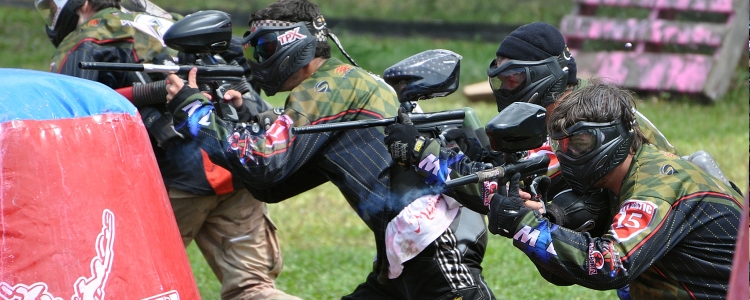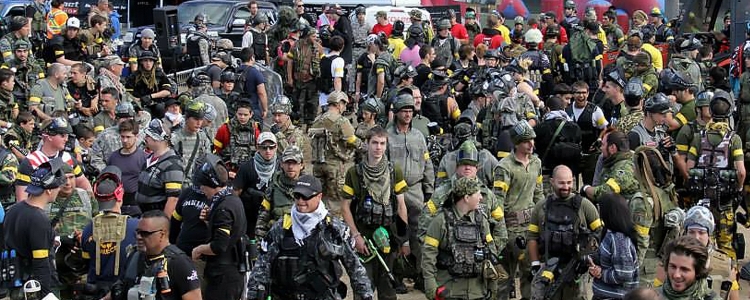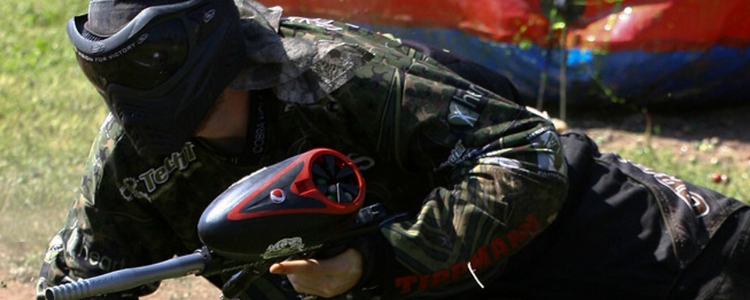 By: Kevin Curry
By: Kevin Curry
What happened to the game we
love? In 2007 there were ten speedball fields in Atlantic Canada. Today there
are only four. Of those four with only three fields are being used regularly.
With regards to one genre of our sport, speedball, how did over a fifty percent
of our available fields happen?
The answer is simple: player decline.
The
events that lead to this decline are more complicated. Of course the lack of empirical
data leads most conclusions on the subject to be a combination of opinion, hearsay
and reflection.
My gut
tells me the reason is a generation of players left the game. The reduction in
players in our genre means field owners have been forced to pin the survival of
their fields on an ever aging pool of veterans, combined with a much younger
albeit smaller influx of rookies.
Let's
be honest, walk-on play generates operating revenue for the field. How
important is speedball to the survival of a field? If anything, speedball is a
diluted ‘value added’ feature at best.
 Our
version of the sport incorporates both the best and worst of paintball. At its
best, our highest calibre players are cherished as highly skilled professional
athletes, akin to their counterparts in other professional sports. Although professional
paintball is lacking the finances to take the sport to the next level, but that
is a whole other issue. At the worst, some veteran members of our sport do
their utmost to drive newer players away.
Our
version of the sport incorporates both the best and worst of paintball. At its
best, our highest calibre players are cherished as highly skilled professional
athletes, akin to their counterparts in other professional sports. Although professional
paintball is lacking the finances to take the sport to the next level, but that
is a whole other issue. At the worst, some veteran members of our sport do
their utmost to drive newer players away.
It has
become the accepted rule that players step through the following evolution: Rental-Walkon-Woodsball-Speedball.
For years this has been the norm. Two things happened to this norm: firstly
Woodsball/Milsim became "cool". Secondly the ever aging pool of
veterans began to leave as real life set in. The first issue would take a year
to debate so I will focus on the second.
What
did these veteran players do for the sport. Well as previously mentioned,
speedball generates little revenue to field owners. Besides the actual
infrastructure that a field may provide, there are no additional resources
dedicated to growing speedball. The speedball aspect of our sport is left in
the hands of a few individuals or groups who take it upon themselves to
organize the sport.
 Let's
face it; there is a huge volunteer aspect to any version of paintball. Unpaid
individuals do everything from tourney/big game production right through to
refereeing. Without these individuals taking a leadership and support roles,
many events would simply not happen.
Let's
face it; there is a huge volunteer aspect to any version of paintball. Unpaid
individuals do everything from tourney/big game production right through to
refereeing. Without these individuals taking a leadership and support roles,
many events would simply not happen.
So the
crux of the argument is this: Many veteran players who dedicated much of their
career to growing the sport saw their involvement dwindle because of real-life.
All the effort they put into the sport caused them to burn out, they felt used,
or they simply stopped caring. When this happened, the onus fell back on the
field owners who as mentioned before, were extremely reluctant to put forth
resources into an empty hole.
 What
are the solutions? Individuals will once again have to take
the bull by the horns and start organizing games/practices. Veteran players
must promote locations willing to provide new player friendly facilities and protect
younger players from those who would be willing to "shoot the shit out
of them" pure enjoyment.
What
are the solutions? Individuals will once again have to take
the bull by the horns and start organizing games/practices. Veteran players
must promote locations willing to provide new player friendly facilities and protect
younger players from those who would be willing to "shoot the shit out
of them" pure enjoyment.
Can
this happen? Sure but we as players, especially tourney players, should be
expected to pay a field fee and a decent amount for paint. If I've learned one
thing in this sport, the race to the bottom or a cost based mentality crippled
our sport beyond belief and it injected a poison which took years to erase.
Players
assuming a leadership role, plus fields willing to support events, plus players
willing to travel, plus players willing to pay a little more, plus experienced
players welcome and help developed newer players, equals a resurgence of our
sport.
Photos courtesy of HalifaxSportsPhotos.ca
Please check out our other sites -
HalifaxSportsPhotos.ca
Tippinators.com
CoroplastCreations.com







